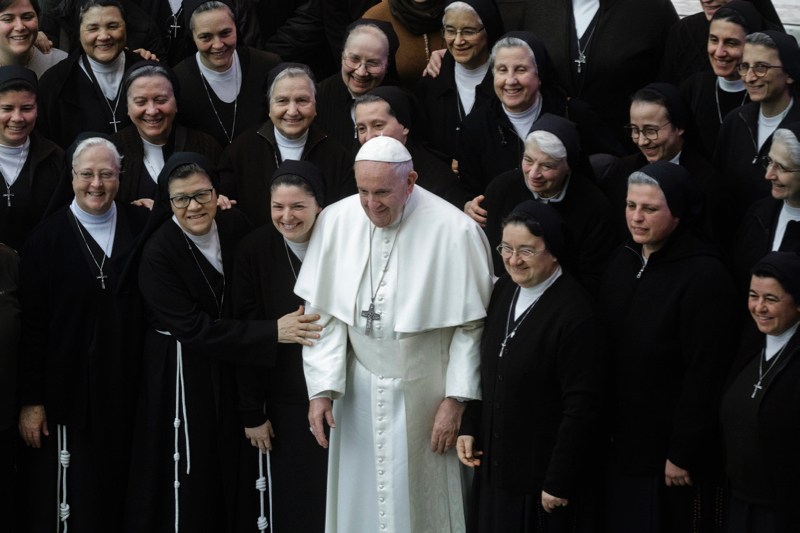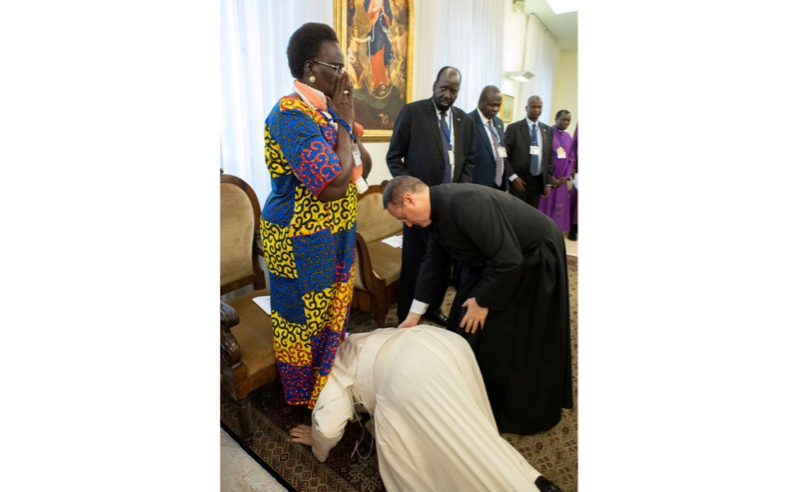The warring factions in South Sudan have agreed to a ceasefire while committing themselves to work for lasting peace in the country following a summit in Rome.
Representatives from the government and the various opposition parties signed the deal at the headquarters of the Sant’Egidio Community, the Catholic humanitarian group which is helping to broker a truce between the parties.
The news raises hopes that Pope Francis and the Archbishop of Canterbury will make their joint visit to the country. The planned trip has been pushed back on several occasions due to security fears and the ongoing conflict in the country.
According to the declaration the political parties have agreed to put down their weapons from midnight on 15 January, pledged to abide by the December 2017 ceasefire agreement and to allow humanitarian organisations access to the country. Sant’Egidio will continue to mediate talks in the hope of finding a workable political settlement.
War and famine have ravaged the world’s youngest state since 2011, with the conflict fuelled by deep-rooted tribal, ethnic and political tensions.
The Rome declaration is a landmark moment because it includes opposition parties who did not sign up to a September 2018 peace deal in Addis Ababa, the accord which provides the framework for forming a government of national unity. Those who did not sign in 2018 have been treated as peace spoilers by many South Sudanese leaders and parts of the international community.
“The whole political family of South Sudan was there,” Mauro Garofalo, the head of international relations for Sant’Egidio, told The Tablet when talking about the Rome deal. “This is an important first step.”
Mr Gaurofalo said the declaration was a response to the retreat led by Pope Francis and Archbishop Justin Welby in the Vatican last April. It ended in dramatic fashion with the Pope bending down to kiss the feet of the South Sudanese leaders in an appeal for them to pursue a peace agreement.
Talks are ongoing in Juba in an attempt to form a unity government with President Salva Kiir and rebel leader Riek Machar by the 22 February. The Pope says he would like to visit the country in March, but Vatican sources say this will only take place if a government is formed.
“We believe the visit of the Pope could be a game changer,” Garofalo says, pointing to how Francis' 2015 trip to the Central African Republic helped ensure elections could take place.
In the declaration, the government and opposition parties say they have been “humbled” by the “relentless spiritual and moral appeal for peace, reconciliation and fraternity” shown by Francis, Archbishop Welby, and Rev John Chalmers, the former moderator of the Church of Scotland. On Christmas Day, the three Christian leaders sent a joint message pleading for peace in South Sudan.
President Kiir had asked Sant’Egidio to mediate talks and do all it can to support the ongoing peace process.
“The ceasefire is necessary to rebuild trust and hope in our people,” Barnaba Marial Benjamin, the envoy of President Kiir, said following the Rome summit. “We followed the invitation of Pope Francis to leave aside the differences and to seek what unites us, the method that inspired the Community of Sant'Egidio as well."
Sant’Egidio is present in 73 countries across the world, with almost half its members in Africa. The group helped broker the Mozambique peace accords in 1992 and facilitate a ceasefire in the Central African Republic.
Although South Sudan’s leaders have signed peace deals in the past, many of these have failed to hold, and fighting has then resumed.
But Garofalo said SantEgidio’s approach was to “never give up, and never stop trying,”
He added: “We are not a powerful organisation, or a government that can impose sanctions. What we have is patience, and we try to stay faithful to the mediation process. This is the beginning of something, but also a support to the ongoing process.”



 Loading ...
Loading ...